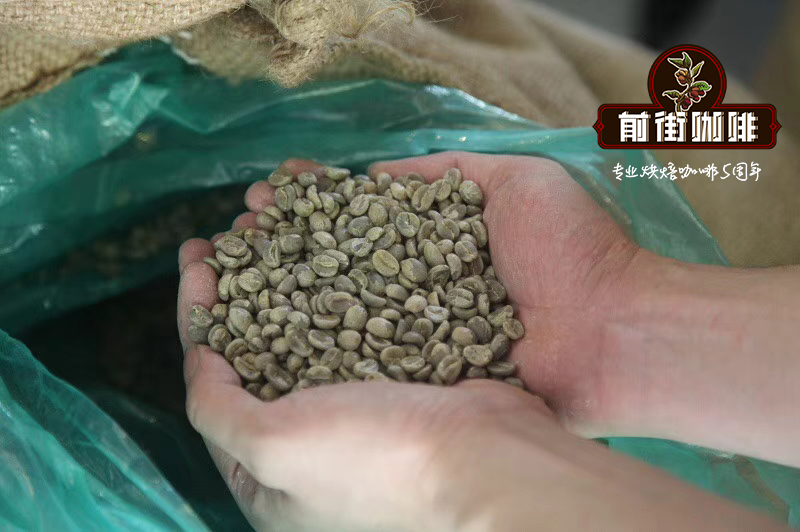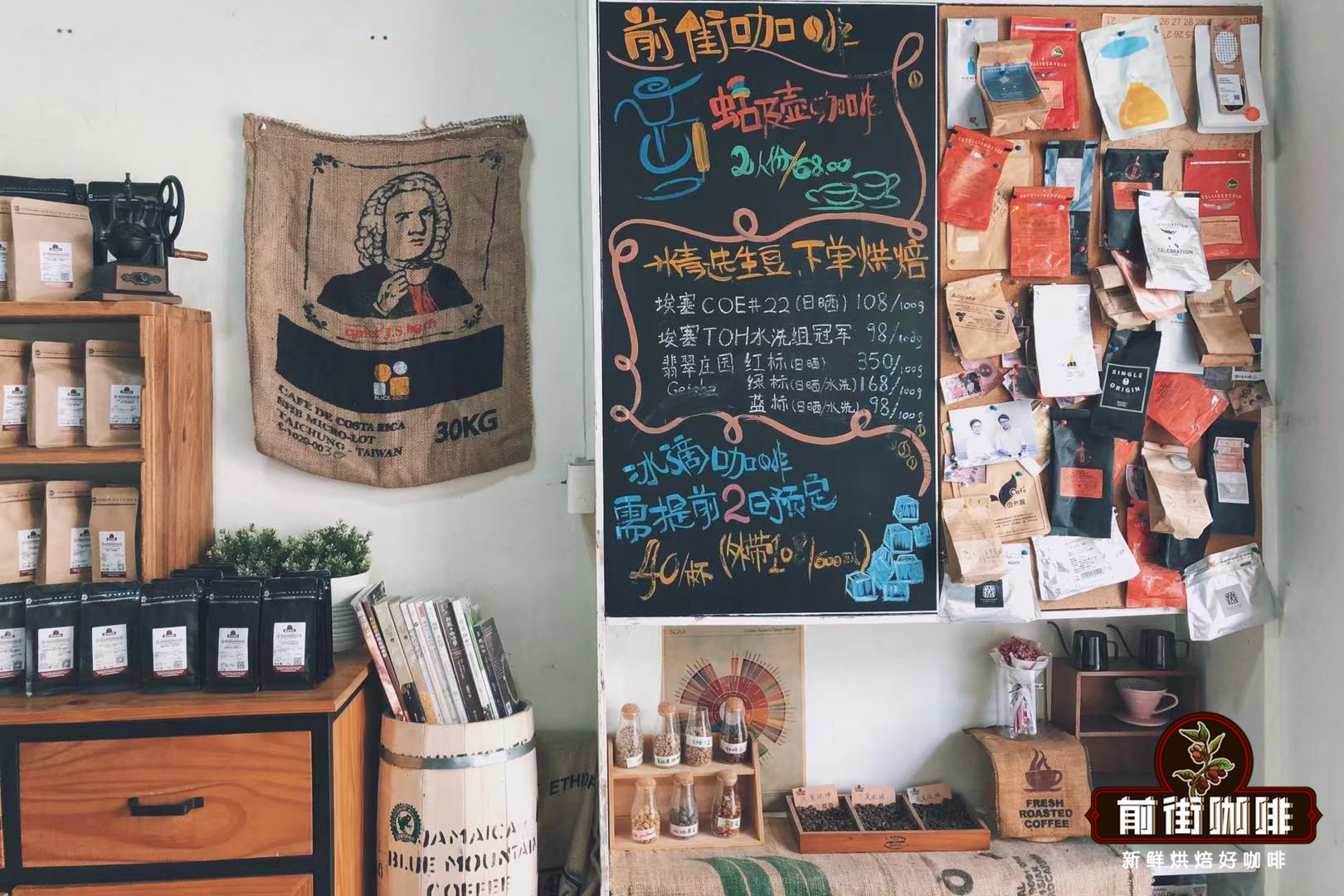Rwandan coffee beans characteristic flavor "grass aroma" you did not know the Rwandan coffee producing area so

Professional coffee knowledge exchange more coffee bean information please follow the coffee workshop (Wechat official account cafe_style)
Rwanda Rwanda Coffee
African coffee always gives the impression of being wild and unrestrained, but Rwandan coffee is so soft, fragrant and saturated that this is my first impression of Rwandan coffee, as far as Africa is concerned. The coffee industry in Rwanda is indeed remarkable because the country thrives mainly by producing high-quality good coffee beans. The taste of Rwandan coffee is described as "grass aroma" with tropical climate characteristics, precisely because Rwanda's extraordinarily fertile soil and suitable climate are very conducive to plant growth, the coffee trees here seem to be driven or forced to grow upward, or because they grow too fast to produce the best coffee beans. But in any case, the soft and full-bodied taste of Rwandan coffee is great. Especially at the end of the drink, it shows a rich aroma of caramel and sweetness, which is really worth tasting in person.
About Rwandan Coffee
Rwandan coffee was once rare in the United States, either as professional or low-end commercial coffee. There is no going anywhere in Belgium, except for a specific importer, the coffee producer in Rwanda, the country's former colonists. It is believed that coffee was launched in Rwanda in 1904 by German missionaries. Around 1930, considerable interest in coffee develops because it is the only income for commodities for rural families. The government encourages (in fact, they regulate) low-quality, mass production. Even with such low-level coffee production, coffee has played a considerable role in the country's economic development because it is one of the few cash crops. However, with the collapse of world coffee prices in the international market, exports of low grade Arabica feel less and less.
Then there was the genocide in the 1990s, one of the most terrible events in modern history. It makes me dizzy, just imagining how a country can recover and how people can return to a "normal" life on a huge scale. But the unswerving and open genocide took place in the recovery of Rwanda. (a personal idea: I want to stand a lot in the world, because the awareness of Rwanda is low, and the self-interest in Rwanda is low. What is the production and export of Rwanda that the world cares about? Clinton said so much time and regretfully recalled the same watch massacre that took place among other world leaders. I feel that in the interests of Rwanda, the popularity of its products and people, another tragedy is difficult to ignore, and coffee is the "bridge to the world" in this sense. )
Transportation is a probem with Rwandan coffee. Coffee has traditionally been transported across Uganda to Mombasa and Kenya to Europe, where travel can undermine coffee and rely on economic and political stability in the region. As a result, coffee cannot reach the market, and such prices and incentives to produce high-end coffee have greatly reduced the number of village coffee farmers. That's why it came as a very pleasant surprise to receive excellent coffee (called cleaning stations) from coffee farms and small steel mills in Rwandan villages. In fact, rural people can take care of their crops and get their export prices is a good sign for Rwanda, and we … Because this is a source of great potential. Historically, Rwanda has been the nine largest arabicain African producer, with an average of less than 500000 small farms per hectare. Coffee is grown in the western and central parts of the country near the capital Kigali. Eastern Rwanda, more than 1/7 of the country, is reserved as a national park and does not have a license to produce coffee.
Rwanda has a lot to go: traditional varieties, good height, willing to be consultants from USAID and others! This is a subtle coffee in some ways, next to many Kenyan cups, but these subtle citric acid properties, interesting aromatics, and consistently high quality make it more interesting than Zambia and Zimbabwe at this point of origin.
Rwanda Coffee
When Coffee Rwanda was founded, the founder, Carl Weyrauch, along with his wife Patricia Bojko and their daughter Anna, visited Rwanda to teach public health workers in Rwanda, a local non-profit. Through a series of coincidences around the roundabout, they found themselves at COOPAC, a Fairtrade coffee cooperative near Lake Kivu.
Carl offered to take coffee samples back to Seattle, which gave birth to his interest in Rwandan coffee: as a nation-building, post-genocide vehicle. To help combat farmers in its poor 2198 members, COOPAC has greatly improved their health as well.
Another surprise about COOPAC is that it did help heal the wounds of the 1994 genocide that made American audiences in the movie, "Hotel Rwanda". Women manually sort beans and they do, and they talk about the relationship between genocide killers and surviving victims-a meaningful and sustainable approach to reconciliation.
Interestingly, COOPAC includes individuals among members of the ceramic community (formerly known as Batwa Pygmies), a marginalized minority within Rwanda. At the beginning of this year, Karl and his friends started the U.S.-based non-profit Pygmies Survival Alliance applying for full profits from the sale of coffee from Rwanda to improve survival and welfare of these, the poorest people in Rwanda: these two have been "left behind" and their neighbors.
Thus, Rwandan Coffee is a "social enterprise" that is all about health, living in one of the least developed countries on the planet, education and welfare for poor families in less than a dollar a day. Every bag of coffee sold causes enough money to buy three pairs of shoes for children to let them go to school, usually for the first time, or to provide health insurance for two people for one year. Or, it can do many other good works for us in Rwanda through cooperation with volunteers in the United States.
What's more, it also provides a large cup of coffee! This is a mutually beneficial and win-win proposition.
Thank you for your benefit in this project and for the welfare of the people of Rwanda. As they say, Kinyarwanda: "Cyane Murakoze
The success story of Rwandan coffee
A hike near New York University in some trendy cafes reveals a common element: the creative packaging and sale of expensive Rwandan coffee.
Given our long-term interests in 1) good coffee and 2) entrepreneurial development potential, this phenomenon is clearly worth investigating. Carol Bauderoux's work, which has been in the Rwandan coffee sector for several years, has helped outline the success story of some donor-funded development, which is now under way.
The history of coffee in Rwanda is intertwined with the country's political destiny, dating back to the 1930s, when the Belgian colonial government required Rwandan farmers to plant coffee trees, while setting price restrictions and high export taxes. And control which companies can buy coffee. These policies help to create a "low-quality/low-price trap" that will also haunt post-colonial governments that continue to be tough. They also guarantee what the country hates-even today, many Rwandans reportedly prefer tea.
The 1994 genocide in Rwanda wiped out struggling industries in the late 1980s after global coffee prices plummeted and the economy was devastated. In 2000, there is no operational infrastructure for cleaning and handling coffee beans, which means that the quality of small coffee production is poor.
Fast forward to today for more than a decade: Rwanda has a national coffee strategy. Rwandan specialty coffee is winning international competitions, ordering some of the highest prices in the world, and seeking Starbucks, Green Mountain Coffee, intellectuals, and counter-cultural coffee. There is preliminary evidence that the coffee industry creates jobs, increases spending and consumption by smallholders, and may even promote social reconciliation, reducing "ethnic distance" between the Hutu and Tutsi who grow up and wash coffee together.
What's going on? First, the Government of Rwanda lowered trade barriers and lifted restrictions on coffee growers. Second, Rwanda has developed a strategy for the production of high-quality coffee, specialty products, whose prices remain stable, even when the price of industrial-quality coffee falls. Third, international donors provide funding, technical assistance and training to establish sustainable partnership programmes such as those funded by the United States Agency for International Development to enhance the development (dissemination) of township and agricultural enterprises. In 2001, the predecessor of the first Rwanda Coffee Cooperation, where the experiment began to spread, the project continued to improve all aspects of its newly discovered high-value coffee supply chain.
Coffee results Rwanda
Some problems and constraints still haunt the coffee industry in Rwanda. For example, transport costs remain high, and in the past, some coffee cooperatives were poorly managed, pointing to the need for good training and continuity of financial management skills.
Still, coffee income from Rwanda continues to grow in the face of the global recession, bringing tangible benefits to the rural poor in Rwanda.
Qianjie coffee: Guangzhou bakery, the store is small but a variety of beans, you can find a variety of unknown beans, but also provide online store services. Https://shop104210103.taobao.com
Important Notice :
前街咖啡 FrontStreet Coffee has moved to new addredd:
FrontStreet Coffee Address: 315,Donghua East Road,GuangZhou
Tel:020 38364473
- Prev

The change direction of flavor and roasting degree of Rwandan coffee beans how to roast Rwandan coffee beans?
Professional coffee knowledge exchange more coffee bean information please follow the coffee workshop (Wechat official account cafe_style) every year from March to July is the Rwandan coffee bean production season, now is the time ~ African beans feel strong with a strong impression of wild and unrestrained, but Rwandan coffee is so soft, fragrant, granular and much milder than beans elsewhere, this is Rwanda
- Next

Flavor characteristics of Rwandan coffee beans "the country of a thousand hills" the story characteristics of Rwandan coffee beans
For more information on coffee beans, please follow Coffee Workshop (Wechat official account cafe_style) Rwanda Coffee, the most popular African coffee after Kenya and Ethiopia. But unlike the two famous producing countries, it does not have a long history of planting, let alone native varieties everywhere in the wild. This small African country is a fire Phoenix that has been reborn after robbery.
Related
- Does Rose Summer choose Blue, Green or Red? Detailed explanation of Rose Summer Coffee plots and Classification in Panamanian Jade Manor
- What is the difference between the origin, producing area, processing plant, cooperative and manor of coffee beans?
- How fine does the espresso powder fit? how to grind the espresso?
- Sca coffee roasting degree color card coffee roasting degree 8 roasting color values what do you mean?
- The practice of lattes: how to make lattes at home
- Introduction to Indonesian Fine Coffee beans-- Java Coffee producing area of Indonesian Arabica Coffee
- How much will the flavor of light and medium roasted rose summer be expressed? What baking level is rose summer suitable for?
- Introduction to the characteristics of washing, sun-drying or wet-planing coffee commonly used in Mantenin, Indonesia
- Price characteristics of Arabica Coffee Bean Starbucks introduction to Manning Coffee Bean Taste producing area Variety Manor
- What is the authentic Yega flavor? What are the flavor characteristics of the really excellent Yejasuffi coffee beans?

